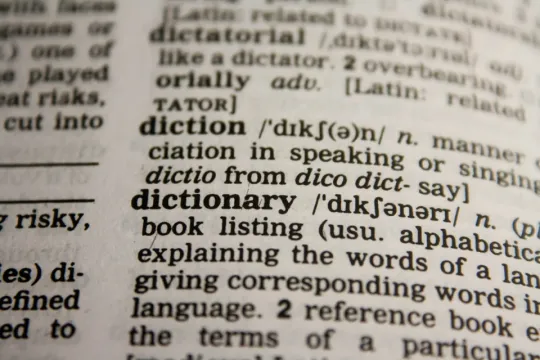Linguistic alternation

Language alternation, also called code-switching, refers to the practice of switching from one language to another within the same conversation, speech, or even sentence. This phenomenon is often observed in individuals who are bilingual or multilingual, and it can be influenced by various factors such as social, cultural and linguistic context.
Language alternation can take different forms. It can occur at the sentence level, where a speaker begins a sentence in one language and finishes it in another. It can also manifest itself at the discourse level, when entire segments of speech are delivered in a single language, and then the person switches to another language.
The reasons for language switching are varied. Some individuals may switch between languages to express subtle nuances, use specific untranslatable terms, or simply for convenience. In a more informal context, language alternation can be a way of asserting one's cultural or social identity.
It is important to note that language switching is not a random phenomenon, but rather a strategic and intentional linguistic behavior. Speakers who practice language switching often have extensive mastery of both languages involved, and they adapt their linguistic choice depending on the context and audience.
In summary, language switching is a fascinating phenomenon that reflects the complexity and flexibility of human communication, particularly in multilingual societies where individuals navigate between different languages depending on needs and circumstances.
Learning a new language, including English, takes time, regular practice and perseverance. However, here are some tips that can help you speed up the English learning process:
- Set clear goals: Identify why you want to learn English, whether for travel, study, work or simply out of interest. Having clear goals will motivate you and give you direction.
- Immerse yourself in the language: Expose yourself to the English language as much as possible by listening to music, watching films or series, reading books, articles or blogs in English. Immersion promotes natural language acquisition.
- Practice regularly: Spend time every day learning English. Consistency is essential to progress quickly.
- Use apps and online resources: Apps like Duolingo, Babbel, or Memrise can be helpful for learning basics and improving your vocabulary. Also use websites to practice grammar and reading comprehension.
- Do language exchanges: Find a language partner with whom you can practice your English. You can participate in online language exchanges or join conversation groups near you.
- Take Online or In-Person Classes: Formal classes can provide you with a learning structure and an opportunity to interact with a teacher. Many online platforms offer English courses suitable for different levels.
- Use the language in real-life situations: Put into practice what you learn by using English in everyday situations. It could be as simple as shopping, ordering from a restaurant, or requesting information.
- Memorize key phrases: Learn some key phrases and common phrases that will come in handy in different situations. This can make communication easier and build your confidence.
- Be patient and persistent: Learning a language takes time. Do not be discouraged by difficulties and be persistent. Celebrate the small victories and progress you make.
Ireland remains a good alternative
Going to Ireland to learn English can be a great idea, as total immersion in an English-speaking country offers a unique opportunity to quickly improve your language skills. Here are some tips to maximize your English learning experience in Ireland:
- Choose the right program: There are many English learning programs in Ireland, ranging from intensive group courses to private lessons. Choose the one that best suits your needs, whether for group lessons, private lessons, evening classes or more intensive programs.
- Live with a host family: Opt for accommodation with a host family rather than in a student residence. Living with an Irish family will expose you more to the local language and culture, which will accelerate your learning.
- Actively participate in social activities: Join clubs, groups, or social events where you can meet native speakers. This will give you additional opportunities to practice English in an informal and friendly context.
- Explore the country: Take advantage of your stay in Ireland to explore different regions of the country. Traveling will give you the opportunity to interact with people from diverse backgrounds, improve your vocabulary, and familiarize yourself with different nuances of English.
- Practice daily: Use English as much as possible in your daily life. Whether it's running errands, ordering from a restaurant, or simply chatting with locals, every interaction will help strengthen your language skills.
- Be open and proactive: Don't be afraid to make mistakes. Be open to correction and use every opportunity to learn. The more you communicate in English, the more confidence and competence you will gain.
- Use local resources: Take advantage of local libraries, museums, cultural centers and events to enrich your vocabulary and understanding of English culture.
- Participate in conversation classes: In addition to your formal classes, look for opportunities to participate in conversation groups or language cafés. These informal environments encourage language exchange and allow you to practice English in a relaxed way.
- Connect online: Use social media to meet native speakers outside of class hours. Platforms like Meetup or Couchsurfing can be useful for finding language exchange partners.
By following these tips and remaining immersed in daily Irish life, you will maximize your chances of making rapid progress in learning English while enjoying an enriching cultural experience.